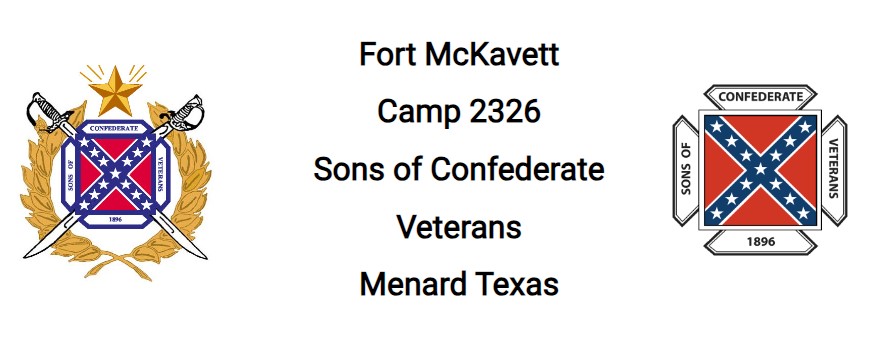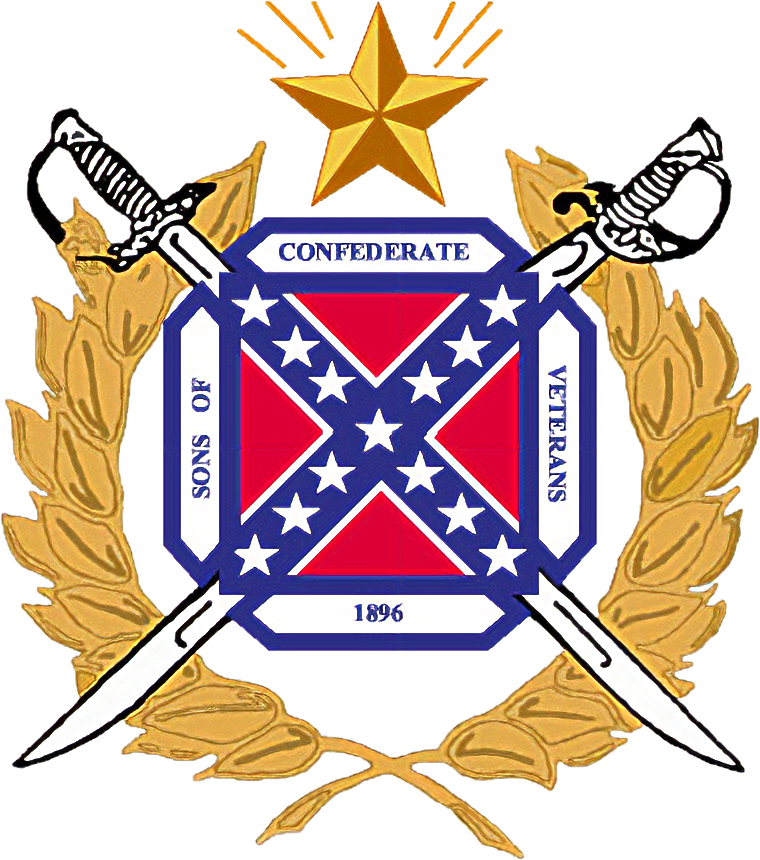
The sons of Confederate Veterans is a patriotic organization, not linked to any other organization, and is neither political nor sectional. We take justifiable pride in our Confederate forebears, men and women, who sacrificed their all for the cause in which they believed. The Confederate soldier won the admiration of the world by his courageous fight against an enemy overwhelming in numbers, equipment, and implements of war. With few exceptions they were volunteers who fought for the principles of government in which they believed. Although defeated, they left us traditions of faith in God, honor, chivalry for womanhood; they left us a passionate belief in freedom for the individual. Our Confederate ancestors bequeathed to us a military tradition of valor, patriotism, devotion to duty, and a spirit of self-sacrifice.
When our nation no longer admires and pays tribute to these traditions, we will no longer remain a free nation.
Our meetings are open to everyone who has a sincere interest in the South's heritage, history, culture and people.
For Camp 2326's most up to date information on meeting times/location along with current officers; please reference our Camp Profile.
Upon Texas' secession the Confederate cavalry occupied this post to give protection against Indians. Early in 1862 this fort confined group of Union troops from surrendered U.S. forts who were seeking to leave the state at start of Civil War. Permanent personnel left the post in April 1862 when the frontier defense line was pulled back more than 60 miles east. However scouting parties and patrols of confederate and state troops used the fort intermittently in aggressive warfare to keep Indians near their camps and away from settlements and to check on invasion by Union forces. Usually supplying their own mounts, guns and sustenance, these men guarded the frontier until war's end. Texas had 2000 miles of coastline and frontier to defend from Union attack, Indian raids, marauders. Defense lines were set to give maximum protection with the few men left in the state. One line stretched from El Paso to Brownsville. Another had posts set a day's horseback ride apart from Red River to the Rio Grande. Fort McKavett and other U.S. forts used by scouting parties lay in a line between. Behind these lines and to the east organized militia, citizens' posses from nearby settlements backed the Confederate and state troops to curb Indian raids. A memorial to Texans who served the confederacy. (1964)
